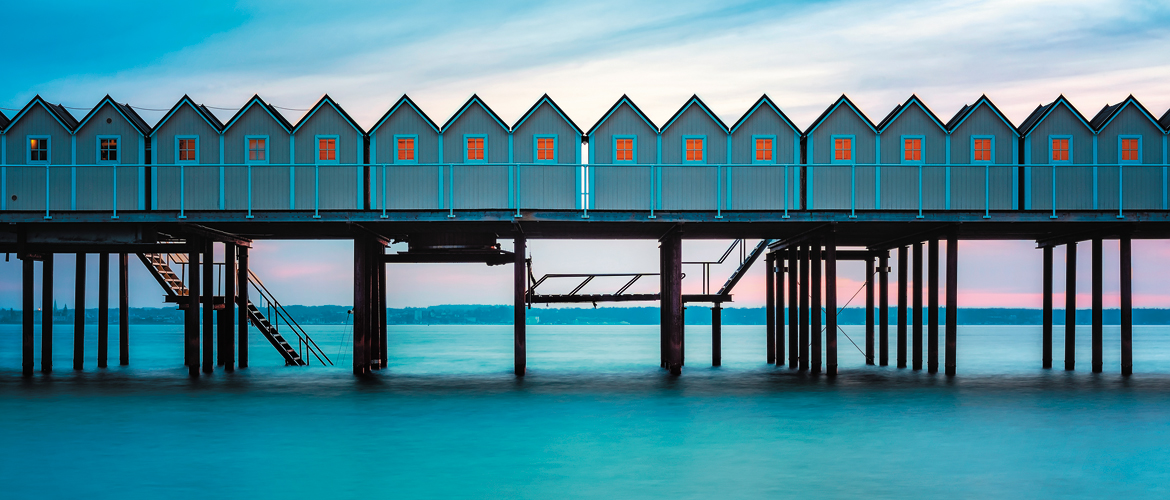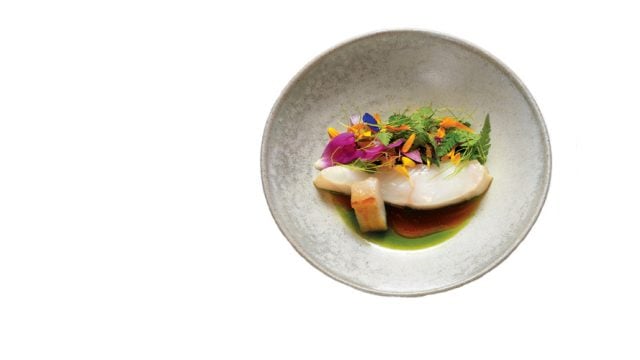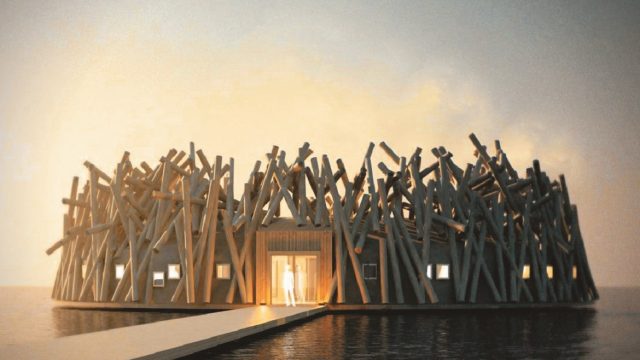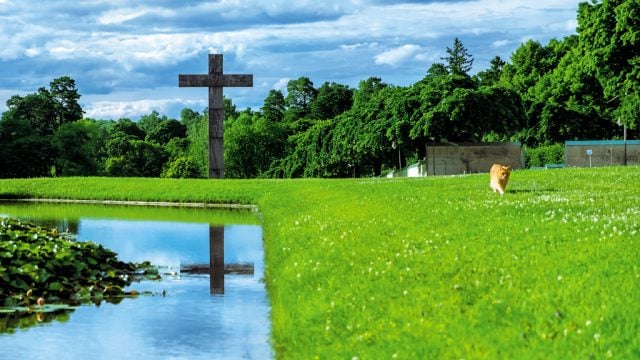Say Sweden and the first thing that comes to mind is frigid winters. For a few months
First-time visitors usually gravitate towards Stockholm and its idyllic archipelago. With its cobblestoned Gamla Stan, royal palace, museums (the Nobel Museum and ABBA The Museum, for instance) and an abundance of blue waters surrounding its city islands, Stockholm is a safe bet to experience the allure of Sweden. However, it is the less visited, low-profile, southernmost part of country—the Skåne region—that offers a wider spread of Nordic charms.
Skåne—Scania in English—is Sweden at its most continental, a gentle reminder of what’s to come further south in Central Europe. It covers 3 per cent of Sweden’s area but is home to 13 per cent of the country’s population. Its counties are separated by sweeping stretches of land full of blooming yellow rapeseed flowers in the summer. Elsewhere, there are untarnished white sandy coastlines and numerous trails that snake through the forests. Skåne provides alternating, at times contrasting, views of Sweden compared to the capital. It is not a weekend destination to be browsed in a rush, but meant to be savoured piecemeal over at least a few days, if not a few weeks.
Skåne has a substantial number of museums, art galleries, nightlife options and other cultural spots. Its most important city is the capital Malmö, which, together with the rest of Skåne, was once a part of Denmark. That was before it was ceded to Sweden in a war in 1675–79. Today, Malmö is better known as the home of one of the best football clubs in Sweden, Malmö FF, which was home to Sweden’s megastar Zlatan Ibrahimovic. Coupled with the Danish capital Copenhagen through the partially underwater Öresund Bridge, Malmö has seen an economic boom that led to its transformation from an old industrial town into a knowledge-driven economy.


Malmö is popular for its cosmopolitan nightlife, daytime cafés serving artisanal brews, and the Turning Torso that dominates its skyline. One of the best ways to study Malmö is to walk across it, something that could take up to half a day while giving perspectives into the layered society that Malmö has become with the parallel, albeit contrasting diffusion of new wealth and influx of poor immigrants. A suitable place to start such a walking tour is Malmö’s Western Harbour, which overlooks the Öresund Bridge, while yachts shilly-shally in the cold waters of the Baltic Sea touching it. The rich of Malmö live here, evident in the expensive residential buildings that span its promenade alongside the 190-feet-tall Turning Torso, the tallest building in Scandinavia.
From Western Harbour, walk alongside the moat-ringed Renaissance castle of Malmöhus, into the elegant spread-out parks, Slottsparken and Kungsparken, before heading to the medieval centre of the city, Gamla Väster, which houses several art boutiques and is a fine place to experience the aesthetic side of Malmö. The gingerbread houses of Gamla Väster are home to the middle-class of Sweden. A 10-minute walk further towards the outer periphery of the city leads to the poorer immigrant quarters. Sweden has an open immigration policy, but the huge intake has resulted in the ghettoisation of some parts of its cities despite considerable efforts towards integration. Malmö, in many ways, is like a vast open-air museum, offering glimpses into its many societies coexisting alongside one another.

Lund, another important location in Skåne, the second oldest city of Sweden, is marked by an impressive cathedral called Domkyrkan. Domkyrkan was constructed in 1100 AD and saw a visit by the Pope in 2016 when Catholics and Lutherans together commemorated the 500th anniversary of the Reformation. Lund in also a university town. Its university is not only the oldest in Sweden, but also a churning pot of innovations, including the first artificial kidney, ultrasound and Bluetooth. No wonder that some of the world’s leading technology companies, including Sony and Ericsson, have set up offices within walking distance of the prestigious university. With its old buildings, photogenic cobblestone streets and youthful vibe thanks to a huge student population, Lund is an excellent base for a couple of days in Skåne.

While both Malmö and Lund have a mix of history and city life, Skåne is scattered with several smaller towns that offer a peek into the Swedish countryside. Standout mentions are Båstad and Torekov, further north of Malmö along the west coast. In terms of architecture, there may not be much to see in these towns, except rustic halcyon villas with unobstructed views of the ocean. Life moves at a calm pace, and a day or two here is a fantastic opportunity to slow down, eat lengthy meals with a glass of locally made gin, and go for a dip in the ocean. Perhaps that is why famous Hollywood actors and football players also find their way here during the summer months.
For nature lovers, Skåne has plenty of activities—hiking, kayaking, diving, fishing, camping, biking and even horseback riding. Thick deciduous forests carpet the whole region, while several lakes punctuate it, opening opportunities for both day trips and longer hikes. To top it, the Swedish law of Allemansrätten (the freedom to roam) allows anyone to camp in an open area, including a private farmland, for a night, making it easier for trekkers to access nature in its most raw form.
While paddling in the canals of Malmö is popular with the locals, the county of Blekinge on the east coast of Skåne provides an ideal platform for planning a kayaking trip across its archipelago. Blekinge comes from the Swedish word bleke, which roughly translates into ‘calm’. Sprinkled with pine trees, some of its islands are uninhabited, while others have few rustic wooden cottages painted in the Swedish flag’s yellow and blue, or more commonly red and white. The waters are calm and ideal for long cruises between the islands. Some of the islands have stunted rocks, pre-fitted with nuts and bolts to practise basic rock climbing.

For a more intensive experience of rock climbing and trekking, the Kullaberg Nature Reserve on the eastern peninsula in Höganäs county is ideal. Climbers prefer its bony, rugged cliffs and steep precipices, and there are several opportunities for first timers to take some lessons here. Recently, Kullaberg got a bicycle trail—the Kattegattleden—a route of roughly 370 kilometres. Kullaberg is also ideal for spotting some wildlife, including foxes and the elusive red deer. The trails are well-marked, and the staff at the visitor centre can suggest good hiking routes in the region.

The most interesting highlight of Skåne is its Skåneleden Trail. At 1,000 kilometres long, it burrows into beech forests, curves alongside lakes, circumvents towns, and runs parallel to the rapeseed fields and the coasts of this region. This trail has a cult status among walkers and hikers in Sweden. It is rarely covered in one summer; rather, it is best taken in in smaller bits over several years. Skåneleden consists of five separate trails, which are further divided into 89 sections. The entire trail is clearly marked, and there is little chance of getting lost. For those interested in doing only one section of Skåneleden, the 70-kilometre-long Kullaleden trail is recommended. It has been certified by the European Ramblers’ Association as one of the best hiking trails in Europe. The route has campsite options, and access to these facilities is free.


Skåne also has 400 kilometres of coastline, dotted with some untouched beaches. The bathing season is not long, usually between May and July. The temperature in these months could be in the high twenties. The popular city beaches include the unspoiled one at Ribersborg in Malmö and the beach in the city of Helsingborg. In Ribersborg is a kallbadhus (cold bath house), which is a traditional Swedish sauna with open-air swimming in the waters of the Baltic. In Helsingborg, the beach overlooks the Danish coastline. On the east coast, the town of Ystad has a white sand beach and a luxurious spa hotel to complement it. The shallow waters of Lomma beach in Bjärred county on the west coast make it a favourite for families with young children.

Then there is the delightful little island of Ven, which, like the rest of Skåne, comes with a split personality, given the shared history with Denmark. Ven is called Hven by the Danes, and people come to this island off the west coast to indulge in its good food and rich wines, ride around on tandem bikes and do kitesurfing. During summer, regular ferries run from the city of Landskrona to Ven. Though less than 500 people live on the island, it is a top draw when it comes to owning a summer house. A solitary trail curves around the island, running parallel to the coast, along which the sea-facing villas queue up like chocolate squares lined next to one another. Far off in the blue water, expensive yachts of all shapes and sizes lie scattered in relaxed informality, like pieces of broken china littered on the floor. Complaints vanish in Ven, and life seems all right, at least while you are here.
The food landscape in Skåne is carved out of locally produced and sustainably sourced ingredients. Lately, Nordic cuisine has gained fame, thanks to the world-famous Danish restaurant, Noma. This cuisine, also central to Skåne, is defined by slow food, prepared fresh, and simple. While there are many fine-dining restaurants, some of the best places to taste local fare are the food markets—called saluhalls—of Malmö, Höganäs and Lund. Malmö’s saluhall is converted from an old warehouse, and is lined with farm shops selling fresh juices, jams and ciders, along with organic cheese, fish and vegetables, while Lund’s is perfect for trying some local cheese. It’s difficult to go wrong with food in Skåne, even for vegetarians.
There is a considerable immigrant population in Skåne and its influences are visible in the food as well. Malmö arguably is the falafel capital of Europe and several kiosks serve this beloved snack. It’s an affordable meal, easily available on the streets, and perhaps that explains its popularity. Swedes love their coffee, and Skåne is also home to some of the best artisanal cafés in Sweden. That’s a good reason to take a Swedish coffee break, called fika. Some of these popular cafés are Lilla Kafferosteriet and Solde in Malmö, Java and St Jakobs in Lund, and Flickorna Lundgren in Kullaberg.

While Skåne is the birthplace of Absolut Vodka (from the small village of Åhus in the east) and Spirit of Hven Gin (organic gin, distilled in the island of Ven), and Akvavit has long history here, it is now gaining fame for its microbreweries also. Popular ones include Helsingborgs Bryggeri and Stockeboda Gårdsbryggeri, located in the Österlen region on the east coast. Many of the breweries arrange guided tours and beer tastings on a regular basis.
What makes Skåne notable for visitors are the short distances between places. This not only makes the region accessible (more so given its proximity to Copenhagen’s airport) but also allows one to accumulate multiple experiences even in short stays. Skåne is slowly being discovered. Its sights and landscape, art and culture, food and drinks all fuse together into an education into the Swedish way of life—one defined by gentle pace, slow food and deep history.
The Information
Getting There
Air India runs daily direct flights from Delhi to Copenhagen and Stockholm, from where Skåne is easily accessible. From Copenhagen, take the train (₹800one way). From Stockholm, take either a train or a flight to Malmö. The fares are comparable (₹5,000–8,000 one way). The towns and villages in Skåne are connected via trains and buses from both Malmö and Lund.
Where to Stay
It is worth experiencing at least one night each in both city and village settings. Speak to the friendly local tourist information staff for tips. Airbnb is the cheapest and easiest option. Scandic (from ₹5,000 doubles; scandichotels.com) is a hotel chain present in all major locations across Skåne. In the countryside, there are excellent B&B options. In Kullaberg, the locals prefer Rusthållargården (from approx. ₹16,000 doubles; rusthallargarden.se) in the village of Arild. In Båstad, Skansen (from ₹15,000 doubles; hotelskansen.se/en) is where most celebrities end up. In the town of Torekov, Torekov Hotell (torekovhotell.se/en) is in the secluded countryside and regularly organises training and spa weekends. In Ystad, don’t miss out on the luxurious Ystad Saltsjöbad Spa (spa packages from approx. ₹14,000 per person; ysb.se), which, in addition to stay options, also has excellent food and rejuvenating spa treatments.
What to Eat & Drink
For vegetarians, Skåne has multiple options. Saluhalls (food markets) in Malmö (malmosaluhall.se), Lund (lundssaluhall.se) and Höganäs (hoganassaluhall.se) are the best and cheapest options to sample local fare. Lunch options in Malmö include Spoonery (try their vegetarian hotpot, ₹600per dish), while for fine dining, the hip Bastard Restaurant (bastardrestaurant.se) is the place to go. In Lund, Govindas (veganistan.se/lund/govindas) is a vegetarian-only option, and is always crowded with students.
Swedes love their coffee, and Lilla Kafferorsteriet, Hollandia and Solde in Malmö are some of the popular coffee shops. In Lund, Java and St Jakob’s are popular cafés.
Skane
Europe
International





